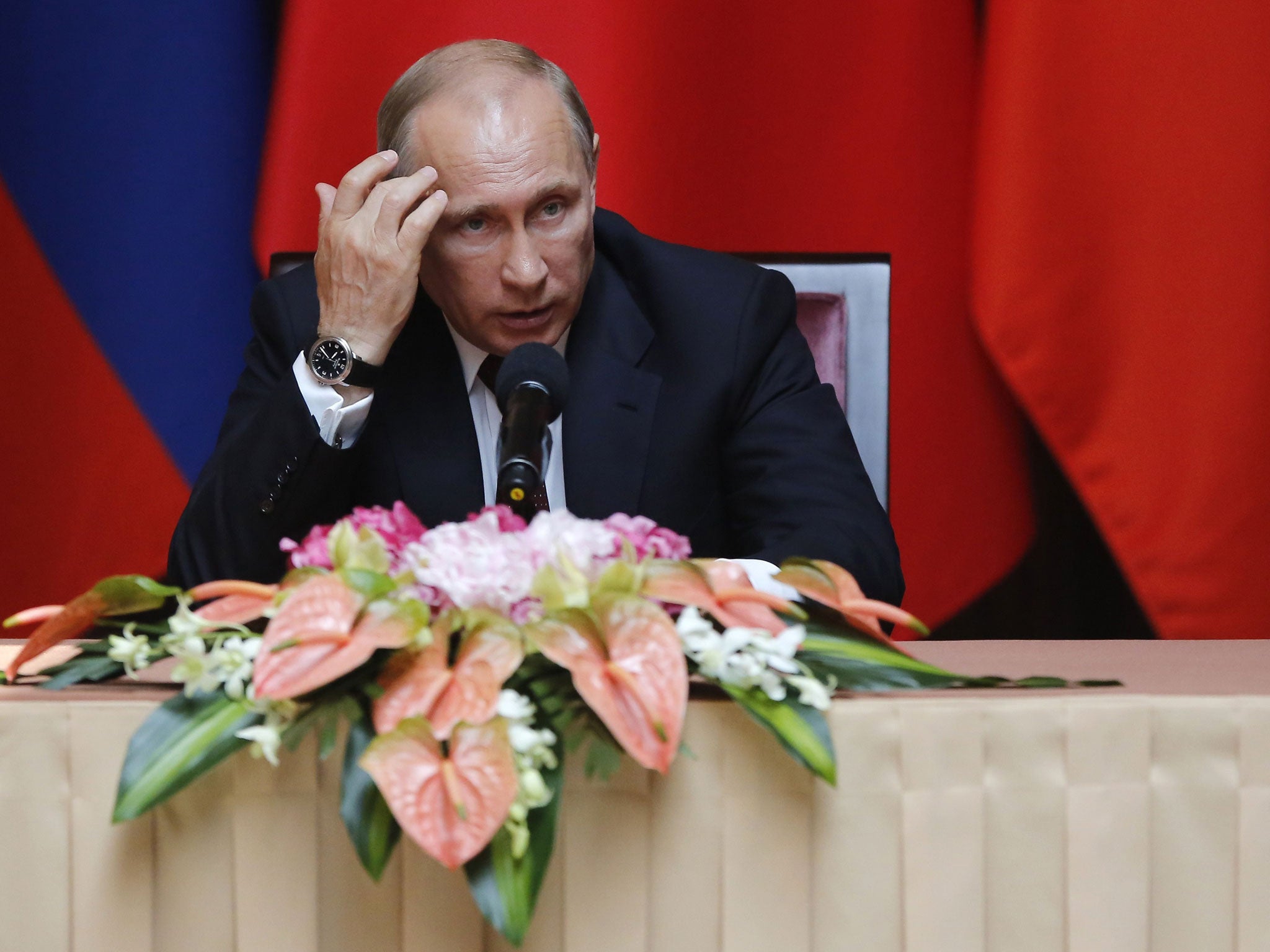It's not just Nigel Farage who overlooks the threat from Russia. Whole European elites are at it too
Perhaps it is their own imperialist past that darkens British and French understanding of this conflict at grass root level

Your support helps us to tell the story
From reproductive rights to climate change to Big Tech, The Independent is on the ground when the story is developing. Whether it's investigating the financials of Elon Musk's pro-Trump PAC or producing our latest documentary, 'The A Word', which shines a light on the American women fighting for reproductive rights, we know how important it is to parse out the facts from the messaging.
At such a critical moment in US history, we need reporters on the ground. Your donation allows us to keep sending journalists to speak to both sides of the story.
The Independent is trusted by Americans across the entire political spectrum. And unlike many other quality news outlets, we choose not to lock Americans out of our reporting and analysis with paywalls. We believe quality journalism should be available to everyone, paid for by those who can afford it.
Your support makes all the difference.Russia is tearing Ukraine apart – it has snatched Crimea and continues to destabilize the eastern region around Donetsk. Ukrainian blood has been spilt and Europe finds itself under dark clouds from the East once again. Yet, in grand rooms in London, Paris and Berlin, important people in dark suits continue to believe Russia has a “historical right” to Ukraine.
There is no such thing as a “historical right” to a country – there is the belief that larger post-imperial states can do as they please with their smaller, weaker former subjects.
When eastern Ukraine is in flames, European capitals continue to host events at which multi-lingual lawyers, former diplomats, journalists and aristocrats affirm that Ukraine has no choice but to eternally live under Moscow’s watchful eye. The West, they insist, has stepped into Russia’s “historic territory” – conveniently forgetting that Ukraine is an independent country whose people have shown more courage and solidarity this year than any European nation since the Balkan Wars. It’s a narrative that makes the Ukraine crisis a zero-sum, sudden- death Cold War-throwback game.
These people, however, are not the only Putin apologists inside Europe. In 2014, on the eve of elections, the people of Europe awoke from their slumber to find that Brussels is full of Neville Chamberlains. Nobody has felt this more than Ukrainians.
Put aside Nigel Farage, Marine LePen and Gabor Vona. Forget Gerard Schroeder’s partying with the Russian President, too. At question is the mainstream European elite – across the political spectrum. In Britain, they are the Etonians in the City who “worked in Moscow” in the 1990s and are convinced they “understand” Russia. In France, they are the industrial giants whose profits are threatened. In Germany, a country where Putin’s propaganda has been particularly effective, even intellectuals reduce Putin’s crimes – often driven by their guilt for Russian suffering during the Second World War. All are drawn by a vague notion of Russian romanticism.
But there is nothing romantic about Putin’s Russia. As Putin drags Russians ever deeper into his ultra-conservative vision of the future, there is no room for a Chekhov, Nabokov or Solzhenitsyn in Moscow in 2014. The world’s largest country is a brutal police state where any opposition to the Kremlin, however muted, is forced underground. With Russian media, courts and businesses firmly in Putin’s hands, freedom of expression, rule of law and political representation are non-existent. Moscow is a hub of corruption, xenophobia and moral failure. As the Kremlin blasts ever-more nationalist rhetoric, Russia’s ethnic minorities are silenced.
So why do these genteel Europeans continue to apologise for Putin’s authoritarianism, and accept that the Russian president has the right to export his strong-arm tactics? Why are these views still acceptable in the birthplace of Western liberalism in what was meant to be the progressive 21st century?
There is little merit in the argument that Putin gets a free pass solely because the West has grown fond of Russian oligarch money. For Putin’s apologists, the problem is deeper. Nor does it necessarily go hand in hand with anti-Americanism and nationalist rhetoric – attributes that attract certain Europeans to the Kremlin. It is Europe’s greatest delusion of the decade: that Putin’s Russia is a semi-democracy. Like Putin, these people favour stability at any price.
Ignoring Putin ruling Russia with an iron fist is bad enough – but accepting his “historical right” to the “Russian world” (what Putin calls post-Soviet lands) ought to be beyond the pale. This 19th century thinking is too common in “Old Europe”, which has the good fortune of not sharing a border with Russia. Alarm bells ring in Warsaw, Vilnius and Tallinn when they see the nonchalance with which Western elites receive Putin’s power grabs. Perhaps it is their own imperialist past that darkens British and French understanding of this conflict at grass root level – or perhaps this arose within the search of an easy solution to an unwanted headache.
If anything, the Ukrainian crisis has taught us that European elites are broken and in dire need of a Renaissance. We Europeans need to realise Putin’s power play threaten our entire liberal democratic political system. Let’s keep that in mind when our pens meet the ballot today.
Join our commenting forum
Join thought-provoking conversations, follow other Independent readers and see their replies
Comments